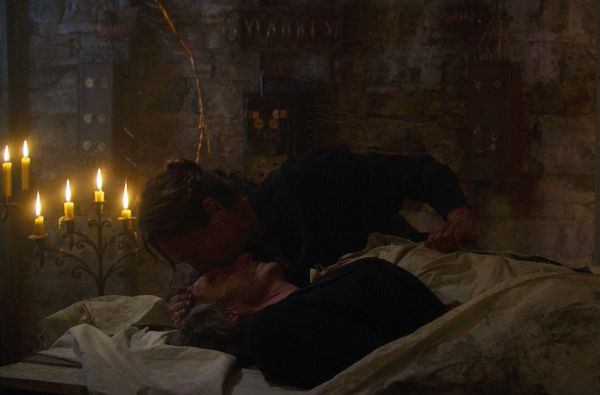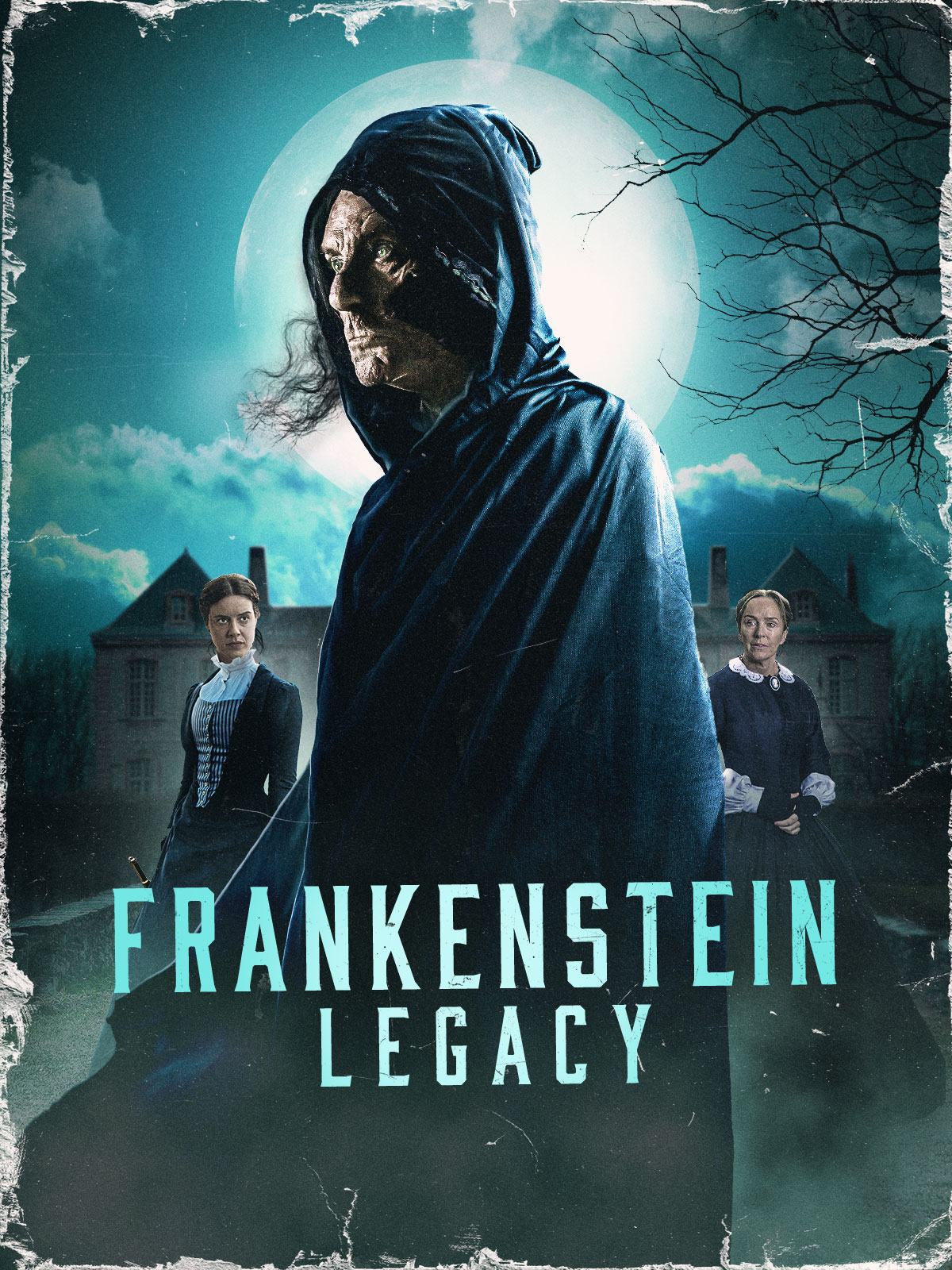Eye For Film >> Movies >> Frankenstein Legacy (2024) Film Review
Frankenstein Legacy
Reviewed by: Jennie Kermode

West Country director Paul Dudbridge appears to be working his way through the Gothic classics. Having directed Fear The Invisible Man in 2023, he picks up Mary Shelley’s classic in a familiar place – the same place that polar explorer Captain Walton picks up Frankenstein himself during his frantic journey across the ice in pursuit of his creation. This section of the story is pretty much a straight retelling, but rather than continuing with the Captain’s account of what his unlikely passenger told him, we follow Frankenstein’s journal as it is sold on by a sailor and passed down through the years from one scientist to another – each of them hoping to repeat the experiment described within.
Whilst it might have been interesting to see a little more of these experiments, Dudbridge makes what is probably the sensible choice, on his modest budget, and focuses on just one. 95 years after that Arctic encounter, Millicent (Juliet Aubrey) is a wealthy Englishwoman who has constructed a private laboratory in the basement of her sizeable abode and is working to find a cure for her ailing husband, Robert (Philip Martin Brown). Readers will quickly anticipate where this is going. They have two children: Clara (Katie Sheridan), who prefers to spend time elsewhere rather than endure her difficult mother; and William (Matt Barber), a psychiatrist who works in the nearby asylum and becomes the film’s erstwhile hero.

Barber, whom viewers may remember from his brief but affecting appearance in Rutger Hauer’s final film, The Sonata, is by far the best thing about the film. He plays it completely straight throughout and manages to make his thinly scripted character feel like a complete person. One assumes that he takes his name from Victor Frankenstein’s little brother. When he develops a tentative romantic interest in a nurse called Liza (Alexandra Afryea), who shares his interest in improving patients’ lives, nominative determinism suggests that they’re doomed, but despite the many references present here, Dudbridge doesn’t stick too closely to tradition.
The difficulty with Barber’s performance is that it’s completely at odds with the style adopted by Aubrey, who gives the impression of being one of those actors who sees all genre work as innately a bit of a giggle and undeserving of serious attention. Granted, in this case the script does a fair bit to support that contention. Some of the dialogue is shockingly clunky. At one point Millicent declares “Let the bodies pile high,” like a pantomime Conservative. Meanwhile, the overwrought score has the unfortunate effect of making some scenes comedic when it does not appear that that was Dudridge’s intention.
Add to this some of the worst screen punches ever filmed – which do not seem to be the actors’ fault – and it’s difficult to achieve any suspension of disbelief. That’s a shame for Barber and for production designer Matilda Mascall, who has done some great work in bringing together period detail with the tropes of the genre. A particular delight is the revivifying fluid which is Re-Animator green but in a shade appropriate to the period.
It’s a good thing to see women coming to the fore in these stories. Liza gets rather more to do than Shelley’s version, and there are bound to be audience members who will swoon over Millicent, hammy though she is, because we don’t get to see enough forceful older women in Gothic garb. There’s a little more personality to the film than in most modern attempts to tell these tales, but with all its flaws it is, at best, enjoyably terrible, and not really worth coming back from the grave for.
Reviewed on: 04 Mar 2024

















